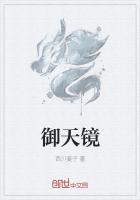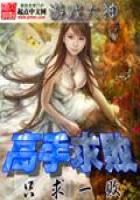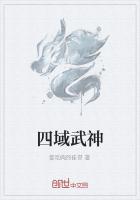In addition to the national anxiety, there was the suspense of those whose sons and husbands and fathers were in the fighting line. Columns of casualty lists were published, and each name appearing there was a sword that pierced a home. One such list, published early in September, was seen by Michael as he drove down on Sunday morning to spend the rest of the day with Sylvia, and the first name that he read there was that of Francis. For a moment, as he remembered afterwards, the print had danced before his eyes, as if seen through the quiver of hot air. Then it settled down and he saw it clearly.
He turned and drove back to his rooms in Half Moon Street, feeling that strange craving for loneliness that shuns any companionship.
He must, for a little, sit alone with the fact, face it, adjust himself to it. Till that moment when the dancing print grew still again he had not, in all the anxiety and suspense of those days, thought of Francis's death as a possibility even. He had heard from him only two mornings before, in a letter thoroughly characteristic that saw, as Francis always saw, the pleasant and agreeable side of things. Washing, he had announced, was a delusion; after a week without it you began to wonder why you had ever made a habit of it. . . . They had had a lot of marching, always in the wrong direction, but everyone knew that would soon be over. . . . Wasn't London very beastly in August? . . . Would Michael see if he could get some proper cigarettes out to him?
Here there was nothing but little black French affairs (and not many of them) which tied a knot in the throat of the smoker. . . .
And now Francis, with all his gaiety and his affection, and his light pleasant dealings with life, lay dead somewhere on the sunny plains of France, killed in action by shell or bullet in the midst of his youth and strength and joy in life, to gratify the damned dreams of the man who had been the honoured guest at Ashbridge, and those who had advised and flattered and at the end perhaps just used him as their dupe. To their insensate greed and swollen-headed lust for world-power was this hecatomb of sweet and pleasant lives offered, and in their onward course through the vines and corn of France they waded through the blood of the slain whose only crime was that they had dared to oppose the will of Germany, as voiced by the War Lord. And as milestones along the way they had come were set the records of their infamy, in rapine and ruthless slaughter of the innocent. Just at first, as he sat alone in his room, Michael but contemplated images that seemed to form in his mind without his volition, and, emotion-numb from the shock, they seemed external to him. Sometimes he had a vision of Francis lying without mark or wound or violence on him in some vineyard on the hill-side, with face as quiet as in sleep turned towards a moonlit sky. Then came another picture, and Francis was walking across the terrace at Ashbridge with his gun over his shoulder, towards Lord Ashbridge and the Emperor, who stood together, just as Michael had seen the three of them when they came in from the shooting-party.
As Francis came near, the Emperor put a cartridge into his gun and shot him. . . . Yes, that was it: that was what had happened. The marvellous peacemaker of Europe, the fire-engine who, as Hermann had said, was ready to put out all conflagrations, the fatuous mountebank who pretended to be a friend to England, who conducted his own balderdash which he called music, had changed his role and shown his black heart and was out to kill.
Wild panoramas like these streamed through Michael's head, as if projected there by some magic lantern, and while they lasted he was conscious of no grief at all, but only of a devouring hate for the mad, lawless butchers who had caused Francis's death, and willingly at that moment if he could have gone out into the night and killed a German, and met his death himself in the doing of it, he would have gone to his doom as to a bridal-bed. But by degrees, as the stress of these unsought imaginings abated, his thoughts turned to Francis himself again, who, through all his boyhood and early manhood, had been to him a sort of ideal and inspiration. How he had loved and admired him, yet never with a touch of jealousy! And Francis, whose letter lay open by him on the table, lay dead on the battlefields of France. There was the envelope, with the red square mark of the censor upon it, and the sheet with its gay scrawl in pencil, asking for proper cigarettes. And, with a pang of remorse, all the more vivid because it concerned so trivial a thing, Michael recollected that he had not sent them. He had meant to do so yesterday afternoon but something had put it out of his head. Never again would Francis ask him to send out cigarettes.
Michael laid his head on his arms, so that his face was close to that pencilled note, and the relief of tears came to him.















